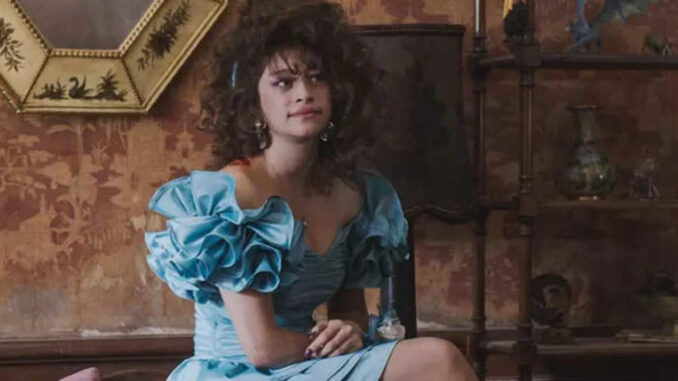
The charm of CBS's "Ghosts" lies not just in its ingenious premise – a young couple inherits a sprawling country estate haunted by a motley crew of spirits from various historical periods – but in the delicate ecosystem of its ensemble cast. Each ghost, with their distinct quirks, unresolved issues, and anachronistic perspectives, is a vital thread in the show's vibrant tapestry. But imagine, for a moment, the unthinkable: what if one of these spectral inhabitants were to somehow… move on? While the mechanisms for a ghost's "exit" are inherently mysterious within the show's lore (ascension, perhaps, or a more dramatic end?), the departure of a specific ghost wouldn't just be a tearful farewell; it would be a seismic shift, potentially altering everything about the show’s comedic timing, emotional core, and narrative direction.
The ghost whose exit would undoubtedly trigger such a profound transformation is Hetty Woodstone, the manor's original matriarch and Sam's fourth-great-grandmother. Hetty is far more than just another colorful character; she is the gravitational center, the historical linchpin, and the moral compass (albeit a frequently self-serving and prejudiced one) around which many of the show's most compelling dynamics revolve. Her departure wouldn't merely leave a character-shaped hole; it would create a matriarchal vacuum that would fundamentally destabilize the entire spectral household.
Firstly, Hetty’s absence would dismantle the show’s foundational family dynamic. As Sam’s direct ancestor, Hetty embodies the manor’s lineage, providing a direct, often contentious, link between the living and the dead. Her initial disdain for Sam's bohemian lifestyle, her gradual, begrudging acceptance, and her occasional flashes of genuine affection have formed the backbone of Sam’s integration into the ghostly world. Hetty's journey from a rigid, classist snob to a woman grappling with the prejudices of her past, often hilariously, is a primary vehicle for the show's exploration of social evolution. Without her, Sam loses her most direct, familial antagonist and ally, and the overarching theme of generational healing within the Woodstone legacy would largely dissipate. Who, then, would provide that specific, high-society counterpoint to Sam's modern sensibilities, or share tales of the manor's origins with such proprietorial authority?
Beyond the leadership void, Hetty’s exit would reshuffle the entire ensemble’s comedic and dramatic architecture. Hetty serves as a crucial foil for almost every other ghost, sparking unique interactions that are essential to the show’s humor and heart. Her constant, exasperated pronouncements about modern life (Wi-Fi, divorce, casual clothing) bounce off the more liberal Flower, the eternally optimistic Pete, or the morally flexible Trevor. Her class-based rivalry with the soulful Alberta, or her quiet, complex relationship with her husband, Elias, are not just plot points; they are wellsprings of character development and running gags. Imagine the absence of Hetty's subtle, judgmental glances, her withering asides, or her surprisingly vulnerable moments when confronted with her own historical misdeeds. The humor would shift, becoming less about the clash of rigid tradition with modern chaos, and more about individual eccentricities. Other ghosts would be forced into new, perhaps less natural, roles to fill the void, potentially diluting their established personas.
More profoundly still, Hetty's departure would alter the show’s thematic landscape. "Ghosts" is deceptively deep, using its comedic premise to explore themes of prejudice, privilege, personal growth, and the enduring nature of human connection. Hetty, as a product of the Gilded Age, embodies many of these complex issues. Her journey of grappling with her racism, her homophobia, and her own past traumas (like her husband’s affairs or her addiction) provides the show with some of its most poignant and powerful moments. She is the living embodiment of the "old ways" that the contemporary world, and even the other ghosts, must confront. Without her struggle to adapt and evolve, the show would lose its most potent and nuanced vehicle for discussing how society progresses, how personal biases are challenged, and how even the dead can find redemption. Other characters touch on these themes, certainly, but none so directly and comprehensively as Hetty.
In conclusion, the hypothetical exit of Hetty Woodstone would be more than just a casting change; it would be an existential crisis for "Ghosts." Her role as matriarch, historical anchor, and the embodiment of the show's critical thematic explorations is irreplaceable. Her departure would not merely remove a character; it would dismantle the delicate balance of a carefully constructed world, compelling the remaining spirits to forge new alliances and the show itself to redefine its comedic voice and emotional resonance. While "Ghosts" is renowned for its adaptability and the strength of its entire ensemble, losing Hetty would undeniably mean watching a fundamentally different, and perhaps irrevocably diminished, show. Her spectral presence is as integral to the manor as its very foundations.